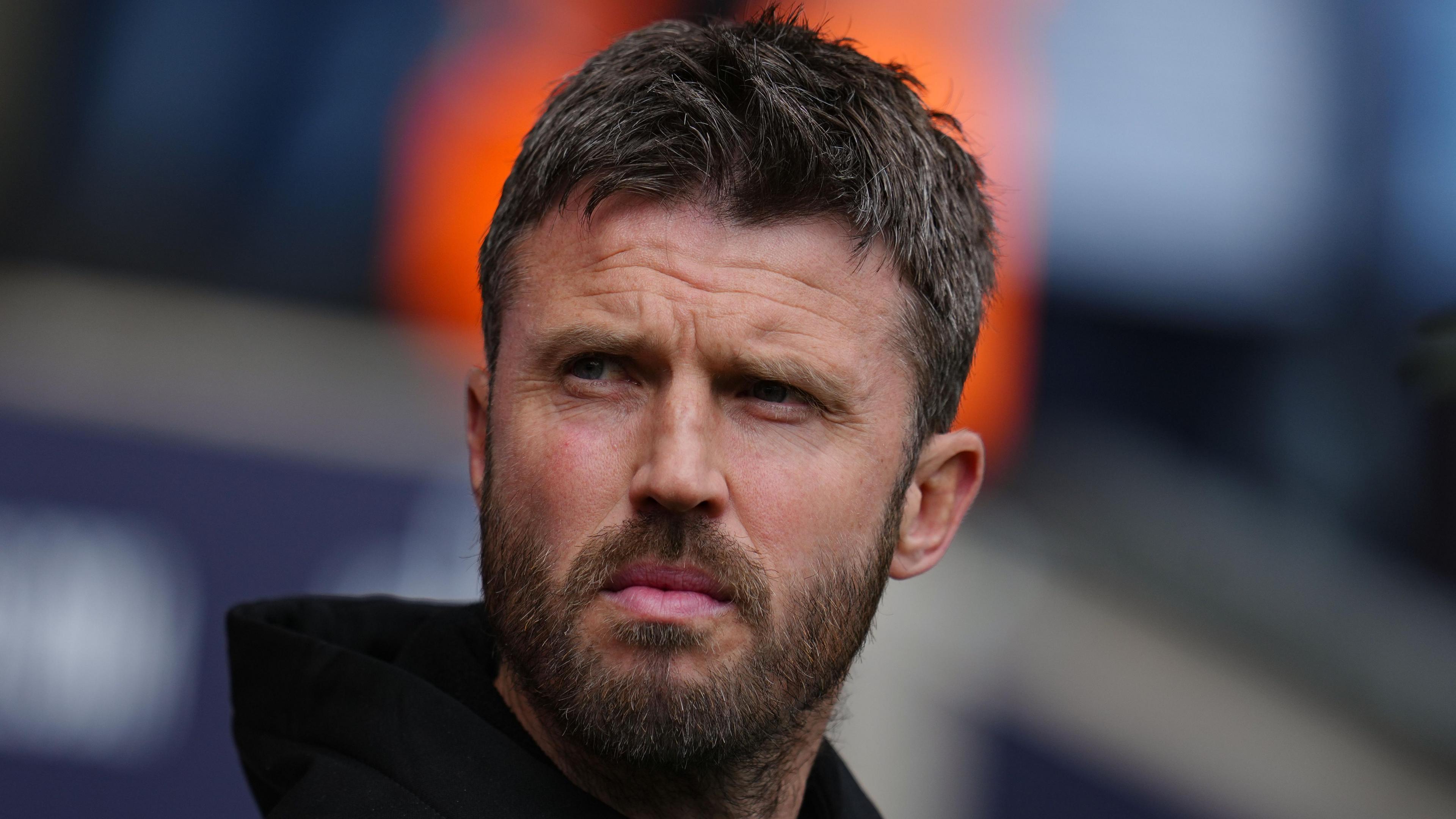Boro's season can only be viewed as a failure

- Published

Michael Carrick took over as Middlesbrough boss in October 2022
"I'm carrying on."
Those were Michael Carrick's words to me in the bowels of Coventry City's CBS Arena in the minutes after Middlesbrough's 2-0 defeat had condemned them to another season in the Championship.
A win would have taken Boro into the top six and a play-off semi-final against Sheffield United. Instead, attention this week has centred on Carrick's future as the club embark on an internal review into a season that began with talk of pushing for automatic promotion and ended mired in mid-table mediocrity.
Boro's finishing position of 10th, four points outside the play-off places, cannot be viewed as anything other than a failure.
Head of football Kieran Scott told BBC Radio Tees Sport last September this was a season the club had identified as being an opportunity because of the particular nature of the Championship.
As it played out two things became clear. Firstly, Scott and Boro's hierarchy were absolutely correct. Leeds United, Burnley and Sheffield United excepted, the division was wide open. Secondly, Boro were making an almighty mess of things.
The points total required to make the top six this season was the lowest in more than a decade, yet Boro finished on 64 points, four behind Bristol City in sixth.
They finished 12 points behind Sunderland in fourth and found themselves below Blackburn Rovers, Millwall and West Bromwich Albion too.
For a bit of context, when Boro won at Blackburn at the beginning of April, Rovers were winless under new manager Valerien Ismael. The Rovers fans were in revolt and everyone confidently declared their season was over. Boro ended up two points beneath them.
Last summer's transfer window was widely regarded as Middlesbrough's best for years, but fans' frustrations built throughout the season as they watched a talented squad win back-to-back Championship games on just four occasions, with one of those incorporating their only three-game winning run of the season.
Then there was the January transfer window.
Striker Emmanuel Latte Lath was sold to Atlanta United for a club record fee of £22.5m, money that precious few Championship clubs can turn down. They did it late in the window and replaced him with Sevilla loanee Kelechi Iheanacho.
To say it did not work out for Iheanacho and Boro would be an understatement. One goal and two assists was the sum total of his output, and by the end of the season he was being jeered from the pitch by his own fans and booed on to it when introduced as a substitute.
Carrick also pushed for the signing of previous loanee Ryan Giles, who had been a great success two seasons ago. This time was different though and long before the season's end Giles had been displaced by another loanee, Sam Illing-Junior.
Injuries also hampered Boro considerably. Liverpool loanee Ben Doak lit up the Championship with his displays in the first half of the season, but his January injury deprived the team of his attacking verve and their only point of difference.
They also endured a sustained spell where there was not a fit senior central defender at the club. That put the spotlight on the manager's decision not to sign a replacement for Matt Clarke when he was allowed to join Derby County in January.
Despite all these issues, going into the final three games Boro's fate was in their own hands. Cue a 2-1 defeat by Sheffield Wednesday from a position of 1-0 up and a missed penalty kick, a goalless draw against a Norwich City side who had just sacked their manager, and then the final day loss at Coventry.
Fans have bemoaned a style of football that was often slow, passive and predictable. Opposing managers queued up to lavish praise on Boro's squad while adding "we knew how they were going to play".
This team has a soft centre. Possibly the most damning statistic among many unfavourable numbers is that on the 18 occasions they conceded the first goal of the game they came back to win only twice, whilst losing 13 times. Both of those comeback wins came against newly promoted Oxford United.
Carrick is well liked by chairman Steve Gibson, who backed his man after February's home defeat by Watford, a game that seemed to signal the end of the road. However, with fans patience running out - this week's online poll in a local paper had 68% of respondents wanting Carrick sacked – the decision over whether to maintain his faith in his head coach is far from straightforward.
Nearly three years into the job, Carrick is the longest-serving manager in the Championship - we will find out in the coming days if that is a record he can hang on to.